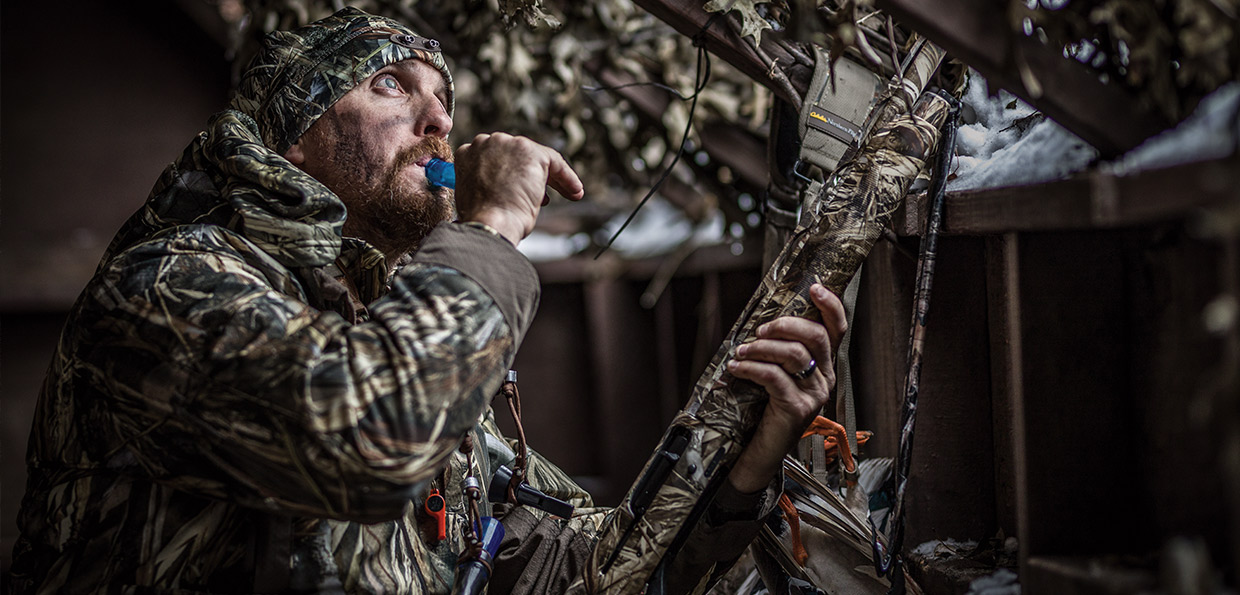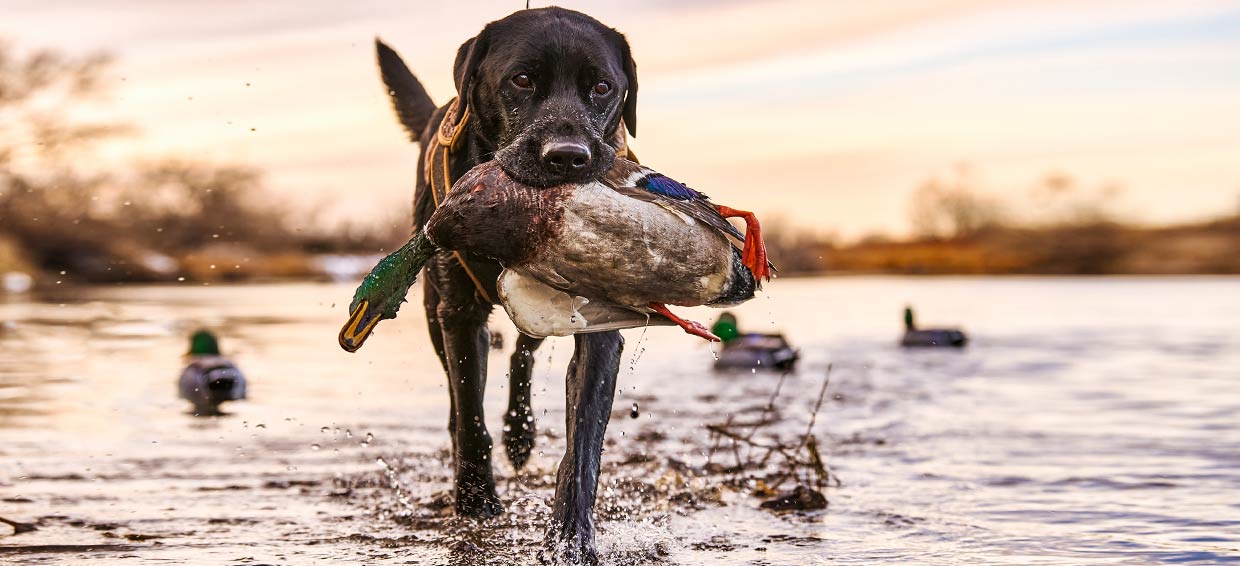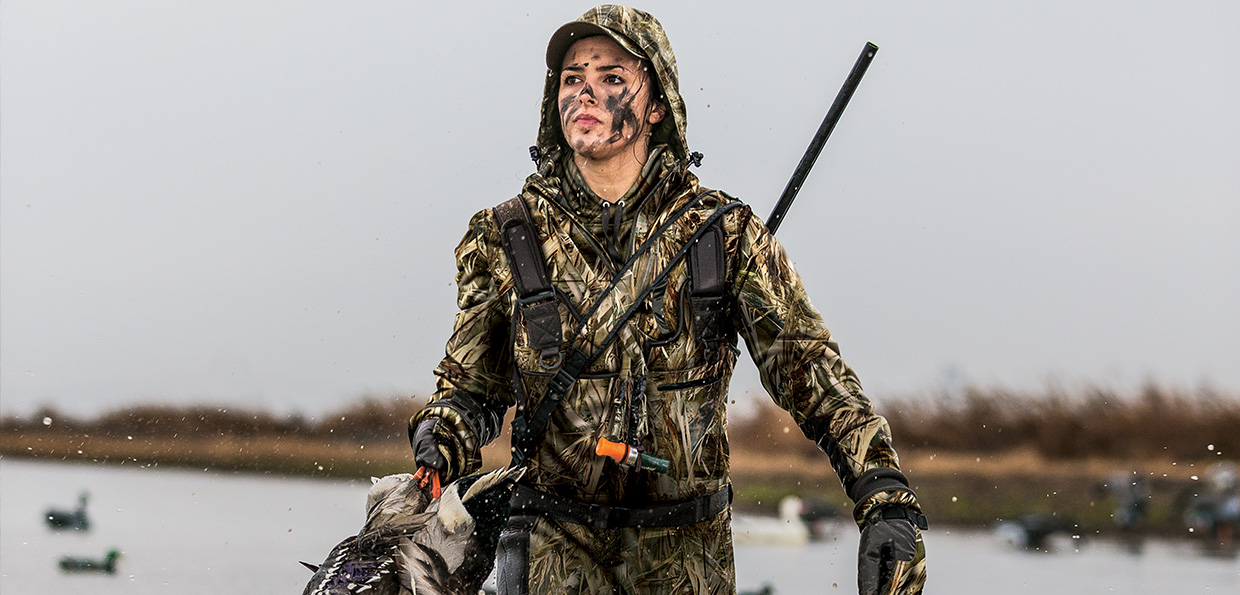Waterfowl

When the frosty chill of autumn starts creeping in and birds begin heading south for their annual migration, hunters everywhere excitedly begin preparing for an epic waterfowl season.
Anyone who has been on a duck hunt knows that these excursions take a mental and physical toll: often it takes days of scouting and glassing before you find the right spot.
But just as these hunters will tell you about their struggles, they’ll also tell you how intensely rewarding the experience can be, they’ll also tell you
how intensely rewarding the experience can be, with many bringing home big numbers to share with friends and family. Our mission is to help celebrate the tried-and-true tradition of waterfowl hunting and make it easier for newcomers to be initiated into this storied pastime. Enjoy helpful tips from the pros, instructional guides, and strategic advice to help you learn the ropes and master the season.
WATERFOWL HUNT CHECKLIST

Preparations
- Hunting License
- Boating License
- Scout Land and Meet and Landowners
- Dog Training & Testing (if using a retriever dog)
- Clay Target Practice (you’re shooting at a moving target)
- Gun Test & Cleaning
After The Hunt
- Processing Equipment
- Shears
- Plastic Bags (for storage)
- Gutting Gloves
Equipment
- Shotshell Ammo (lead free!)
- Shotgun
- Gun Case (floating gun case if you are hunting over water)
- Blind
- Waterproof Gloves
- Calls/Whistles
- Flashlight/Headlamp
- Bird/Wing Identification Book
- Gun Cleaning Kit
.
- Waterproof Waterfowl Camo Clothing including Hat and Gloves
- Binoculars
- Bug Spray (for early season hunts)
- Decoys
- PFD (for water hunt)
- GPS device
- Waders (for water hunt)
- Waterproof Boots
- Facepaint
- Hearing and Eye Protection
Public Land and Waterfowl Hunting Etiquette

A waterfowl hunting enthusiast knows that public lands offer ample opportunities, and it is a good idea to keep them on their radar. But let's keep in mind that you're not the only one eyeing these lands. When you're out there, let's show our fellow hunters some respect and courtesy so that we can all have a successful and enjoyable hunt.
Here are eight important things to keep in mind while you are on public lands:
WATERFOWL APPAREL & FOOTWEAR

Apparel by Season
Stay focused with the right waterfowl apparel for your ultimate comfort, mobility, and success.
Early Season Apparel
- Promotes ease of movement and mobility
- They are breathable, waterproof, and lightweight
Tip: Add base layers on cold days.
Mid-Season Apparel
- Provides insulation without restricting your movement
- Versatile for changing weather conditions: waterproof and windproof
LICENSES & SEASONS BY PROVINCE
Migratory birds are regulated by the Government of Canada. Season date ranges within a province will vary by zone, and by sub-species.
Please refer to the linked resources for detailed information on hunting in your area.
To hunt migratory game birds in Canada, you must possess:
a valid Migratory Game Bird hunting permit and A Canadian Wildlife Habitat Conservation Stamp affixed to or printed on the permit.
These documents, as issued by the federal government, are valid in all provinces and territories.
The information presented above is meant as a quick reference and does not represent all areas of residence, species and other regulatory requirements. Dates are subject to change based on management zone, animal class and hunter specifications. Please refer to the dates posted on each province’s/territory’s website, available by clicking on the province/territory.